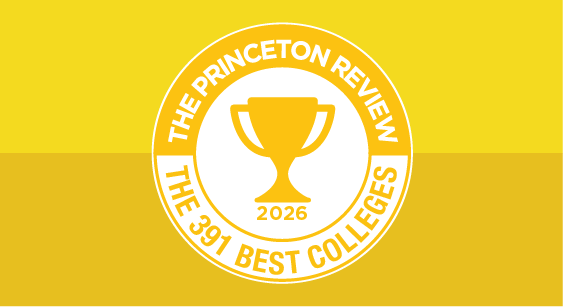Neuroscience
Overview
Ever wonder how our minds work? A major in Neuroscience might put you on a path to answering that question. Neuroscience, according to Kenyon College, is “the study of brain-behavior relationships in order to understand the roles they play in regulating both animal and human behavior.” A relatively new field of study, Neuroscience combines the fields of biology, psychology, chemistry, engineering, and others to come to a more specific understanding of how brain structures influence behavior. As a Neuroscience major, you’ll learn about the evolution of the brain, cellular neuroscience, and genetics. You’ll learn about consciousness and what affects it. You’ll learn about the nervous system, and what factors might enhance or destroy it. You’ll study various types of both normal and abnormal behavior. And then you’ll put them together and see how the brain and nervous system are themselves factors in why we act the way we do.
Much of your Neuroscience coursework will require research and laboratory work. You might study the electrical activity of nerve cells, or evaluate the effects of drugs on behavior; there are any number of directions your research may lead you.
You can apply your Neuroscience major to any number of fields—medicine, research, and psychology are only a few of the options. Let your own vision and passion for the brain lead you.
SAMPLE CURRICULUM
Cells, Metabolism and Heredity
Cognitive Neuroscience
Comparative Animal Physiology
Developmental Biology
Drugs and Behavior
Electrophysiology
Evolution and Human Evolution
Neurobiology
Neuropsychology
Neuropsychopharmacology
Physiological Psychology
Sensation and Perception
Sensory Biology
HIGH SCHOOl PREPARATION
GRADUATE PROGRAMS & CAREERS
Explore Colleges For You
Connect with our featured colleges to find schools that both match your interests and are looking for students like you.
Top Schools for Game Design
Ready to create the next great app? Launch your gaming career at one of these top 50 programs.
Best 391 Colleges
170,000 students rate everything from their professors to their campus social scene.
Get Started on Athletic Scholarships & Recruiting!
Join athletes who were discovered, recruited & often received scholarships after connecting with NCSA's 42,000 strong network of coaches.



